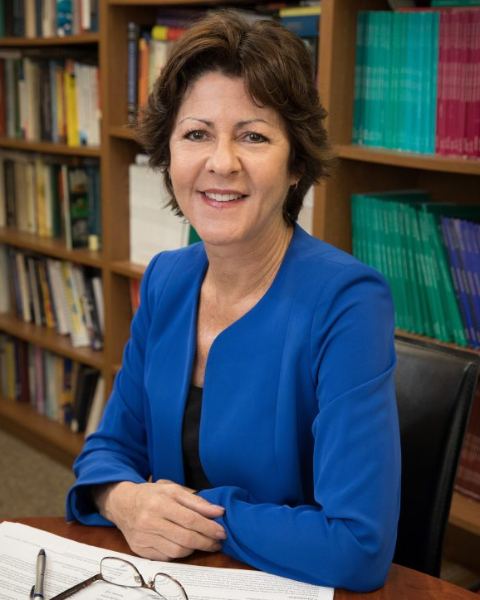Treatment - CBT
Symposium 97 - Reward Processes and Links to Psychotherapy for Anxiety and Depression
Level of Familiarity: Moderate
Recommended Readings: Craske, M. G., Meuret, A. E., Echiverri-Cohen, A., Rosenfield, D., & Ritz, T. (2023). Positive affect treatment targets reward sensitivity: A randomized controlled trial. Journal of consulting and clinical psychology, 91(6), 350., Zbozinek, T. D., & Craske, M. G. (2017). The role of positive affect in enhancing extinction learning and exposure therapy for anxiety disorders. Journal of Experimental Psychopathology, 8(1), 13-39., Willems, A. L., & Vervliet, B. (2021). When nothing matters: Assessing markers of expectancy violation during omissions of threat. Behaviour research and therapy, 136, 103764., Taylor, C. T., Stein, M. B., Simmons, A. N., He, F., Oveis, C., Shakya, H. B., ... & Jain, S. (2024). Amplification of positivity treatment for anxiety and depression: a randomized experimental therapeutics trial targeting social reward sensitivity to enhance social connectedness. Biological Psychiatry, 95(5), 434-443., Rosenberg, B.M.*, Barnes-Horowitz, N. M.*, Zbozinek, T. D., & Craske, M. G. (2023). Reward Processes in Extinction Learning and Applications to Exposure Therapy. https://osf.io/preprints/psyarxiv/twbfx
-
NB
Nora Barnes-Horowitz, M.A. (she/her/hers)
Graduate Student
University of California, Los Angeles
Los Angeles, California, United States -
BR
Benjamin Rosenberg, Ph.D. (he/him/his)
PhD Student
University of California Los Angeles
LOS ANGELES, California, United States -

Michelle Craske, Ph.D.
Professor of Psychology, Psychiatry and Biobehavioral Sciences
University of California, Los Angeles
Los Angeles, California, United States -
AW
Anne Willems, Ph.D. (she/her/hers)
KU Leuven
Leuven, Vlaams-Brabant, Belgium -
NB
Nora Barnes-Horowitz, M.A. (she/her/hers)
Graduate Student
University of California, Los Angeles
Los Angeles, California, United States -
BR
Benjamin Rosenberg, Ph.D. (he/him/his)
PhD Student
University of California Los Angeles
LOS ANGELES, California, United States -
DK
Divya Kumar, Ph.D. (she/her/hers)
McLean Hospital
Cambridge, Massachusetts, United States
Chair(s)
Discussant(s)
Presenter(s)
Anxiety and depression are common and highly distressing mental health conditions. Reward processes are commonly studied in relation to depression (e.g., anhedonia) and have informed treatment approaches such as behavioral activation (Forbes, 2020). However, while such treatment approaches are often successful at reducing negative affect, they often fail to increase positive affect (Craske et al., 2016). Novel therapeutic approaches designed to increase positive affect via strategies such as the savoring of positive experiences may augment the efficacy of existing psychotherapies (e.g., Kumar et al., under review).
Reward processes are less well-studied regarding anxiety. However, basic and translational science increasingly shows an overlap among canonical threat and reward processes. For example, relief is a positively valenced emotion that has been linked to threat omission during fear extinction (Willems & Vervliet, 2021) and dopaminergic learning mechanisms that are typically considered in reward paradigms (Kalisch et al., 2019). High positive affect has been shown to augment Pavlovian fear learning and retention (Zbozinek & Craske, 2017). As extinction learning forms the foundation of exposure therapy treatment for anxiety (Craske et al., 2022), there is reason to believe that reward processes may similarly be relevant to exposure therapy, though further study is needed. Furthermore, treatments for anxiety disorders (e.g., exposure therapy) may rely on reward processes, although this connection has not received similar attention.
This symposium presents novel work at the forefront of basic, translational, and clinical science. The positive emotional experience of relief and corresponding activation of dopaminergic brain structures are associated with the omission of threat (Willems et al., under review). Prediction error learning and relief differentially predict a reduction in anxiety symptoms and increase in reward sensitivity, respectively, following a series of exposures for social anxiety (Barnes-Horowitz et al., in prep). In a direct translation to exposure therapy, within-subjects levels of positive affect are shown to moderate expectancy violation among individuals undergoing treatment for social anxiety disorder (Rosenberg et al., in prep). Incorporating interventions to target positive affect, such as savoring, increases the efficacy of behavioral activation therapy (Kumar et al., under review). Collectively, these studies support the notion that reward processes can be leveraged to increase therapeutic outcomes in novel ways, highlighting the need for more research in these areas.
Learning Objectives:
- Identify overlap among basic reward and threat processes of relevance to psychopathology
- Highlight individual differences in positive affect as a dimension particularly relevant to psychotherapy
- Identify possible roles for reward processes during exposure therapy
- Extend research on reward processes in support of behavioral activation therapy
- Consider future applications of this work, including potential modifications to existing psychotherapy protocols
Presentations:
-
2:30 PM - 3:30 PM EST(SYM 97) Fmri Evidence for the Prediction Error-like Processing of Absent Danger in the Reward and Salience Pathway and Its Relation to Self-reported Relief
Speaker: Anne L. Willems, Ph.D. (she/her/hers) – KU Leuven
Co-author: Lukas Van Oudenhove, M.D., Ph.D. – KU Leuven
Co-author: Bram Vervliet, PhD – ku leuven
-
2:30 PM - 3:30 PM EST(SYM 97) An Exploration of Prediction Error Learning and Relief During Exposure for Public Speaking Anxiety
Speaker: Nora Barnes-Horowitz, M.A. (she/her/hers) – University of California, Los Angeles
Co-author: Tomislav Zbozinek, PhD (he/him/his) – UCLA
Co-author: Michelle G. Craske, Ph.D. – University of California, Los Angeles
-
2:30 PM - 3:30 PM EST(SYM 97) Positive Affect Moderates Expectancy Violation During Exposure Therapy for Social Anxiety
Speaker: Benjamin Rosenberg, Ph.D. (he/him/his) – University of California Los Angeles
Co-author: Christina Sandman, M.A. – University of California Los Angeles
Co-author: Amy Sewart, PhD (she/her/hers) – Dr. Amy Sewart - Clinical Psychologist
Co-author: Tomislav Zbozinek, PhD (he/him/his) – UCLA
Co-author: Michael Treanor, PhD (he/him/his) – UCLA
Co-author: Michelle G. Craske, Ph.D. – University of California, Los Angeles
-
2:30 PM - 3:30 PM EST(SYM 97) A Randomized Controlled Trial of Brief Behavioral Activation Plus Savoring for Positive Affect in University Students
Speaker: Divya Kumar, Ph.D. (she/her/hers) – McLean Hospital
Co-author: Sarah Corner, M.A. (she/her/hers) – Southern Methodist University
Co-author: Alicia Meuret, Ph.D. – Southern Methodist University

.png)
